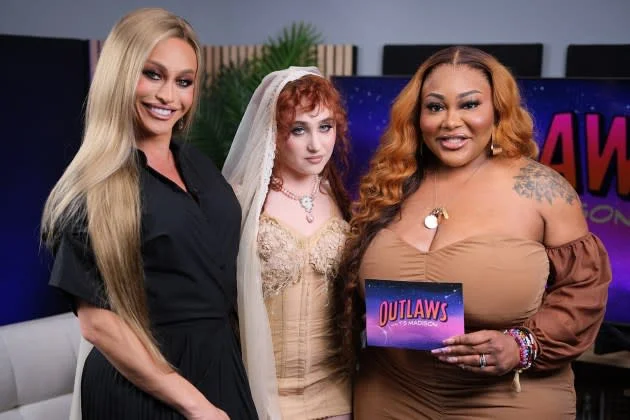
Chappell Roan Addresses ‘Villain’ Label & Toxic Fan Behavior: ‘If I Do Not Stand Up for Myself, I Will Quit’
Chappell Roan, the rising pop star behind the hit 'Good Luck, Babe!', is making headlines not just for her music, but for her outspoken stance against toxic fan behavior and the pressures of the music industry. In a recent interview on TS Madison’s 'Outlaws,' Roan opened up about being labeled a 'villain' after setting boundaries and demanding respect, sparking a crucial conversation about artist well-being.

Roan described the challenges of navigating sudden fame, stating, "I was the new girl in the pop game, where I was like, 'I don't give a f–k what you say to these girls who have been doing this since they were 10.'" She emphasized that her experience as an adult before achieving fame at 26 allowed her to recognize and demand respect in a professional setting.
The artist recalled a stark contrast between her treatment on red carpets and her previous job at a doughnut shop. "I've been treated better at my doughnut shop job than I have on a f–king [red] carpet," she revealed. "People on the news treat me worse than how customers did. And I think when I started to say, 'Don't talk to me like that' … That doesn't mean that I'm a villain or ungrateful for what I have. It's like, 'Why is this customary?'"
Roan drew comparisons to the media's past treatment of stars like Britney Spears, Lindsay Lohan, and Paris Hilton, noting that such behavior is still prevalent. She expressed concern that unchecked harassment could lead to agoraphobia or debilitating anxiety. "If I do not stand up for myself, I will quit because I cannot bear this. I cannot bear people touching me who I don't know. I cannot bear people following me. I cannot bear people saying I’m something I’m not,” Roan declared, highlighting the emotional toll of public scrutiny.
Roan also addressed the impact of social media and online commentary. She specifically called out the pop culture account Pop Crave, noting that its posts often contribute to misinterpretations and online backlash. "People just assume you’re the villain,” she lamented, emphasizing the difficulty of controlling one's narrative in the digital age.
This isn't the first time Roan has spoken out about fan behavior. Previously, she addressed concerns about stalkers and unwanted physical contact, leading to a broader discussion about the boundaries between artists and their fans. While some criticized her for being ungrateful, Roan maintains that protecting her well-being is essential for her continued career. As she stated so clearly, "If I do not stand up for myself, I will quit."
Ultimately, Chappell Roan’s willingness to speak out is resonating with many, highlighting the need for greater empathy and respect within the music industry. Her message is clear: artist well-being should not be sacrificed for public perception.
What do you think? Has Chappell Roan inspired you to consider the pressures faced by artists in the spotlight? Share your thoughts in the comments below!